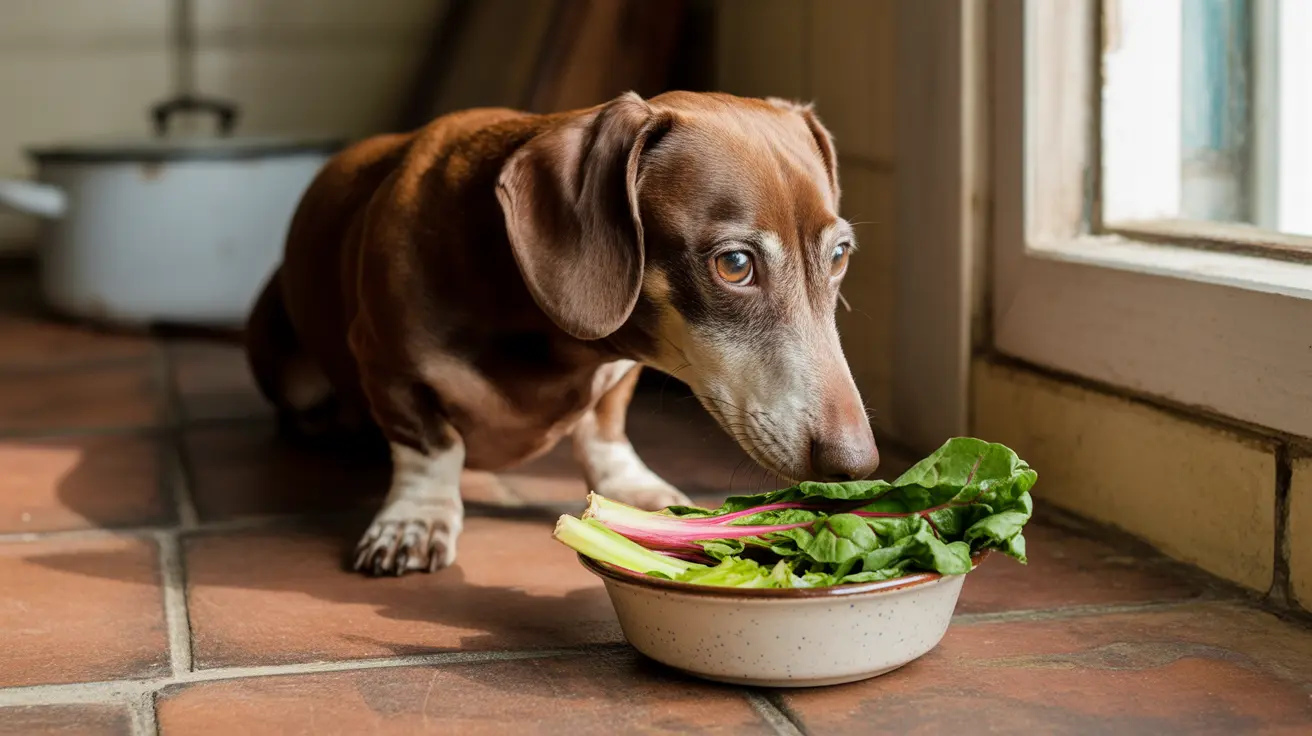As pet owners increasingly seek healthy, natural additions to their dogs' diets, Swiss chard has gained attention as a potential nutritious treat. This leafy green vegetable offers impressive nutritional benefits, but it's essential to understand both its advantages and potential risks before adding it to your dog's meal plan.
In this comprehensive guide, we'll explore everything you need to know about feeding Swiss chard to your canine companion, including proper preparation methods, serving sizes, and important precautions to keep in mind.
Nutritional Benefits of Swiss Chard for Dogs
Swiss chard packs a powerful nutritional punch that can complement your dog's regular diet when served appropriately. This leafy green is rich in essential vitamins and minerals that support various aspects of canine health:
Key Nutrients and Their Benefits
- Vitamins A, C, K, and E for immune support and vision health
- Iron and magnesium for blood health and energy metabolism
- Dietary fiber for digestive health
- Antioxidants for cellular protection
- Low-calorie content, making it suitable for weight management
Safe Preparation and Serving Guidelines
Proper preparation is crucial when feeding Swiss chard to your dog. Follow these guidelines to ensure safety:
Preparation Steps:
- Wash thoroughly to remove dirt and pesticides
- Remove tough stems
- Chop into small, manageable pieces
- Steam or lightly cook without seasonings
- Allow to cool before serving
Recommended Serving Sizes:
- Small dogs: 1-2 teaspoons of cooked chard
- Medium dogs: 1-2 tablespoons
- Large dogs: 2-3 tablespoons
Potential Risks and Considerations
While Swiss chard can be beneficial, there are several important considerations to keep in mind:
Watch Out For:
- High oxalate content that may contribute to kidney stone formation
- Possible digestive upset in sensitive dogs
- Risk of choking if not properly prepared
- Potential allergic reactions in some dogs
Best Practices for Introducing Swiss Chard
When adding Swiss chard to your dog's diet, follow these guidelines:
- Start with very small amounts
- Monitor for any adverse reactions
- Introduce gradually over several days
- Mix with regular food rather than serving alone
- Maintain proper portion control
Frequently Asked Questions
Can dogs eat Swiss chard safely, and what are the potential health benefits and risks for my pet?
Yes, dogs can safely eat Swiss chard when properly prepared and served in moderation. Benefits include vitamin and mineral supplementation, while risks include potential oxalate issues and digestive upset if overfed.
How much Swiss chard can I safely give my dog, and what is the best way to prepare it for them?
Start with small amounts (1-2 teaspoons for small dogs, up to 2-3 tablespoons for large dogs). Always cook the chard lightly and chop it into small pieces to prevent choking.
Does Swiss chard have any negative effects on dogs, such as causing kidney stones or digestive issues?
Swiss chard's high oxalate content may contribute to kidney stone formation in susceptible dogs. Some dogs might experience digestive issues if fed too much or if introduced too quickly.
Are there certain dogs who should avoid eating Swiss chard, and when should I talk to my vet about it?
Dogs with a history of kidney stones, calcium oxalate crystals, or sensitive digestive systems should avoid Swiss chard. Consult your vet before introducing it if your dog has any existing health conditions.
Can I substitute Swiss chard for other leafy greens in my dog's diet, and how does it compare to spinach or kale?
Swiss chard can be alternated with other safe leafy greens, but each has different nutritional profiles and considerations. Spinach has similar oxalate content, while kale might be a better option for dogs sensitive to oxalates.
Conclusion
Swiss chard can be a healthy addition to your dog's diet when properly prepared and served in moderation. Always introduce new foods gradually and watch for any adverse reactions. If your dog has existing health conditions, particularly related to kidney function or calcium metabolism, consult with your veterinarian before adding Swiss chard to their diet.
Remember that while Swiss chard offers numerous nutritional benefits, it should only make up a small portion of your dog's overall diet, with the majority coming from complete and balanced dog food appropriate for their age and size.






